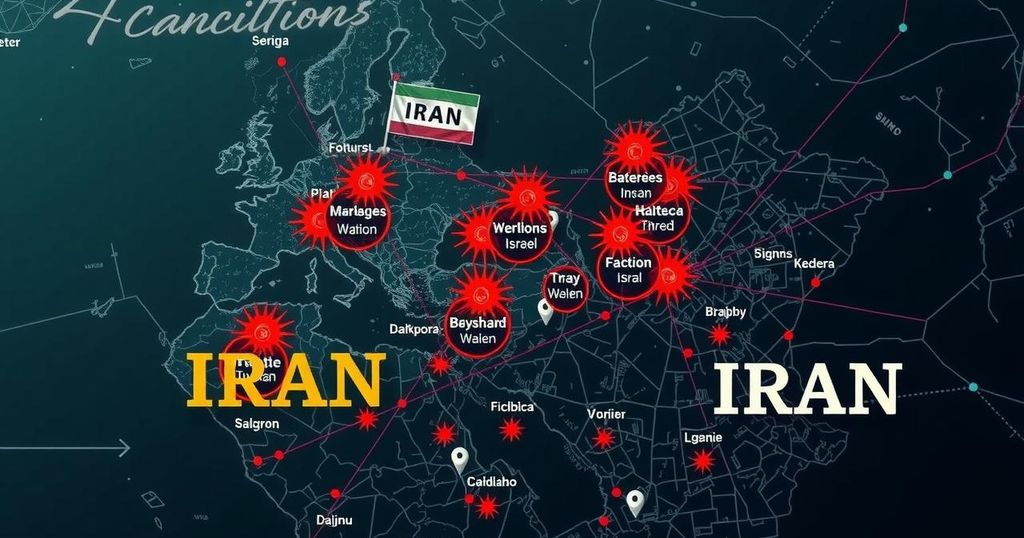The Israeli military has launched precise strikes on military targets in Iran in retaliation for a missile attack from Iran. This move follows escalating tensions since October 7, with Israel asserting its right to respond to aggression. Concurrently, the U.S. Secretary of State is attempting to mediate a ceasefire as military actions widen in the region, including strikes in Syria and Lebanon.
The Israeli military commenced precise strikes against military targets in Iran early Saturday morning, primarily as a reprisal for a ballistic missile attack executed by Iran on October 1, as reported by officials to the Associated Press. The Israeli military communicated, “The regime in Iran and its proxies in the region have been relentlessly attacking Israel since Oct. 7 – on seven fronts – including direct attacks from Iranian soil. Like every other sovereign country in the world, the State of Israel has the right and the duty to respond.” In further communications, military spokesman Rear Admiral Daniel Hagari stated that Israel has “fully mobilised” its offensive and defensive capabilities in anticipation of aggression, while urging citizens to remain vigilant, as defense systems were placed on high alert following the attacks. Potentially exacerbating tensions, Iranian officials had previously declared that any military incursions into their territory would provoke formidable retaliation. In the context of international diplomacy, American news outlet Fox News disclosed that the White House was informed shortly prior to the initiation of the air strikes. This military engagement by Israel occurs concurrently with U.S. Secretary of State Antony Blinken’s visit to Israel, aimed at mediating the ongoing strife in the Middle East and seeking a ceasefire agreement. Additionally, it is noteworthy that Israel executed further air strikes in Syria on the same day, with reports confirming sounds of explosions in Damascus. These actions form part of Israel’s extended efforts, which since late September have focused on the eradication of alleged Hezbollah terror networks in both Syria and Lebanon. Israel’s military actions have also attracted significant criticism, particularly after an attack resulted in the deaths of three journalists in a compound in southeastern Lebanon. As of now, no official responses or acknowledgments of damage from Iranian authorities have been reported following Israel’s military strikes.
The ongoing conflict between Israel and Iran has escalated recently, with tensions rising significantly following a ballistic missile attack by Iran against Israel on October 1. Israel’s military strategy is characterized by its emphasis on preemptive strikes against what it perceives as threats, particularly from Iran and its proxies in the region. The situation has further complicated due to diplomatic endeavors by the United States to mediate peace in the Middle East, highlighting international interests in mitigating conflict. These strikes also occur in a broader context of regional instability, including military actions in Syria and Lebanon aimed at thwarting Hezbollah’s operations. This conflict is deeply rooted in longstanding geopolitical rivalries and security concerns.
In conclusion, the recent Israeli military strikes on Iran represent a significant retaliation against perceived threats following the missile assault on October 1. These actions underscore Israel’s declared right and responsibility to defend its sovereignty amid ongoing hostilities. As international diplomatic efforts continue, the situation remains tense, with potential implications not only for Israel and Iran but for the stability of the broader Middle Eastern region.
Original Source: www.hindustantimes.com







